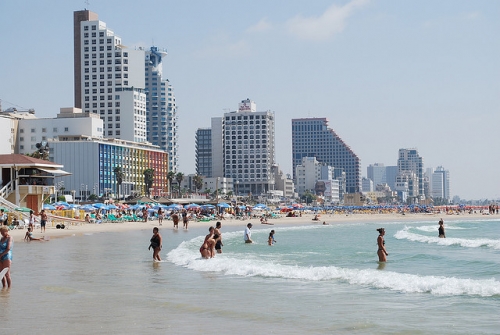Everybody knows Israelis are sexy. They’re all buff from years in the military, they can curse fluently in Hebrew and Arabic and English, and to top it off, they’re impossibly tan from living under the Mediterranean sun. I’m jealous of my friends who go to Tel Aviv in the summers and lounge on the beach with great eye candy, some Goldstar beer, and a few Israeli books.
Yep, books. Sayed Kashua’s Second Person Singular, which came out in Israel two years ago and is out in English now, had me turning the pages, wondering what sort of scandal might be going on under the protagonist’s nose.
The author is an Israeli Arab—a sizeable minority living in Israel—and it’s no surprise that his characters are similarly marginalized. When a rising Arab lawyer who has successfully become Israeli discovers a love letter from his wife to someone he doesn’t know (in a used bookstore, no less), he sets out to discover who the addressee is, and how this has all been happening without his knowledge. Needless to say, Israel’s a country that struggles withits identity and its survival, and the descriptions of the rift between Arab and Jewish cultures by one who straddles the divide are illuminating, frighteningly accurate, and deeply moving.
I kept thinking of an evening in college: I got to talking with a fellow freshman who had a hookah in his room and said he was from Jerusalem. When my friends and I walked out of his room that night, we saw the sign on his door with his name—just like the signs the freshman counselors had put on all the other doors—and his hometown. It said East Jerusalem, Palestine, but I paused when I saw he’d crossed out the Palestine and scrawled Israelunder it. From my side of the fence, I hadn't ever thought about the feelings Palestinians might have about this ongoing struggle.
Every so often I hear about bombings in Israel or Palestine or the territories in between (and, to put this in context, I hear about this just as often as I hear about murders or violent crimes on the local news). It's true that there are deep-rooted historical arguments for the divide between Jews and Arabs, between Israel and Palestine, but there's more to the story. In fact, they already do work together in spite of the ongoing conflict, making reality far less black-and-white than either side's rhetoric might suggest.
There’s a mystery to be unraveled in Second Person Singular, many mysteries in fact, but the biggest questions remain unanswered in the book’s pages. If I ever go back to Israel, I’ll go to Bat Yam with my surfboardand my eyes open. Behind those superficially shiny bodies are some astonishingly forceful sentiments about Israel, Palestine, and the people trapped in between.
image credit:flickr.com





 A Black Balloon Publication ©
A Black Balloon Publication ©